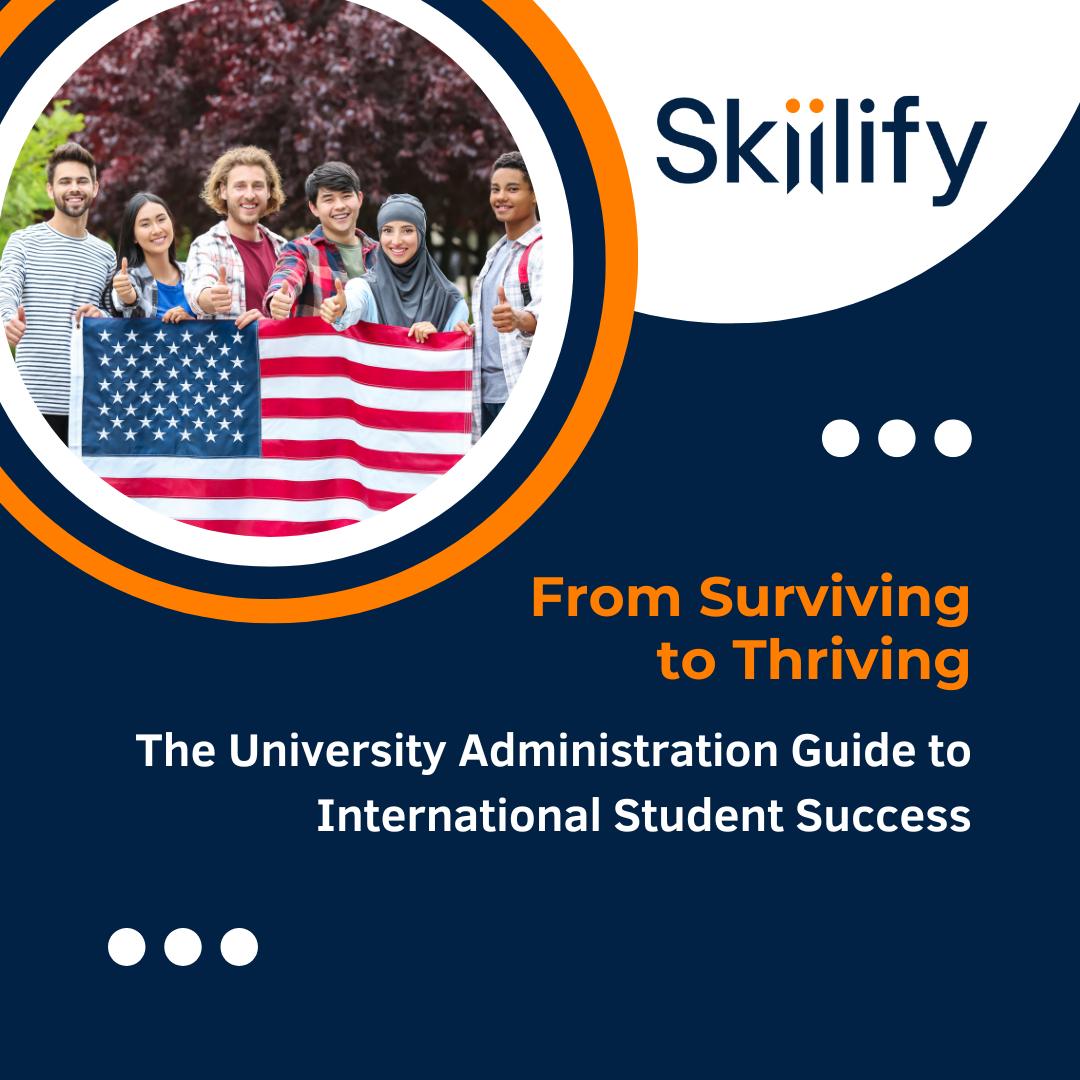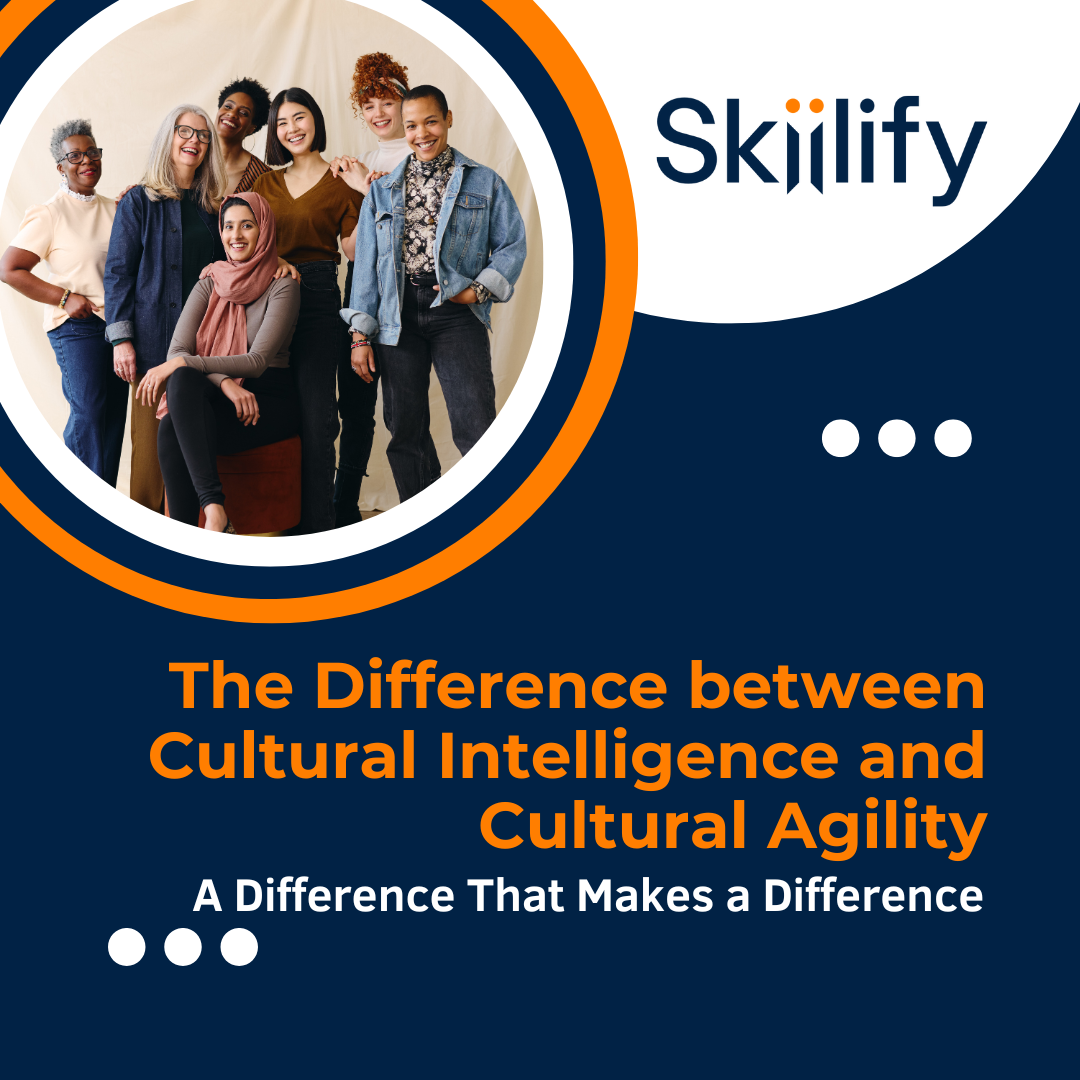
Three Ways to Build Unshakable Team Trust
Building unshakable trust isn’t just about improving communication—it’s about transforming the way team members interact with one another. When teams prioritize transparent communication and respect diverse communication styles, they create an environment where trust can thrive. This not only strengthens team bonds but also boosts collaboration, innovation, and overall performance. With Skiilify’s myGiide tool, teams can unlock the power of transparent communication and build the trust needed to succeed in today’s complex, interconnected world. By embracing diversity and fostering clear, empathetic dialogue, teams can transform their relationships and achieve new levels of success.

Thriving International Students: A Guide for University Administrators
As all university leaders know, the academic journey of international students is often burdened with challenges beyond just their grades. Cultural differences, feelings of social isolation, and unfamiliarity with the U.S. educational system can lead to stress and anxiety, significantly impacting their academic performance. Research shows that international students who adapt well to their host country environment are more likely to succeed academically, feel a sense of belonging, and graduate. In contrast, the failure to adapt creates deep personal, financial, and educational problems for international students.

The One Skill Employers Are Desperate For – And How You Can Prove You Have It
Adaptability was named by LinkedIn as one of the most in-demand skills by recruiters. Applicants with adaptability can thrive in dynamic, complex, and ambiguous environments. They are comfortable with change and are resilient in volatile and uncertain situations. Do you have adaptability? Check out myGiide to find out. While you’re there, you can learn some ways to build this in-demand skill. When detailing your work history, focus on experiences where you had to adjust to new roles, responsibilities, or environments. Describe specific situations where you successfully navigated change, emphasizing the positive outcomes. For example: “In my previous role, I was part of a team that underwent a major restructuring. I quickly adapted to new workflows and contributed to developing streamlined processes that improved efficiency by 20%.

The Secret Skill of Successful Sales Representatives
At Skiilify we have been successfully training sales representatives to build their cultural agility competencies and, in turn, increase their sales. It is the secret skill in today’s diverse marketplace. The ability to navigate cross-cultural interactions is not just an advantage but a necessity as businesses cater to increasingly diverse customer bases. Having cultural agility enables sales reps to build trust, gain credibility, and communicate persuasively across cultures are crucial. The market is becoming more diverse with each passing year. In the United States, for example, cultural diversity is becoming an increasingly common norm. This demographic shift presents immense opportunities for sales representatives, but it also poses significant challenges in terms of the need to understand cultural nuances.

Is global mobility dead?
The answer is “it depends”. For global mobility functions still focused on traditional long-term moves, their scope and influence are rapidly decreasing. However, the opposite is true for global mobility functions transforming into a strategic partner in talent management.One, global mobility professionals need to focus on attracting and retaining talent. This is different from the relocation skills once needed.Two, global mobility professionals need to embed cultural adaptability into the entire workforce. This is different from the focus on cultural skills for only those who were relocating. Three, global mobility professionals need to focus on strategic global talent management. This is different from the past when the function was more focused on administrative tasks.

Help Your Students Build Cross-Cultural Competencies in as Little as One Hour
In today's interconnected world, cultural agility—the ability to interact comfortably and effectively with people from different cultures, whether virtually or in person—has become a crucial skill. However, research indicates that only about 20% of students possess this essential capability. This gap presents a significant challenge for educators preparing students to thrive in a globalized environment. Students who are culturally agile have adaptability (named by LinkedIn as one of the most in-demand skills) and are better equipped to communicate, collaborate, and build meaningful relationships with individuals from diverse backgrounds. These skills are not only vital for personal development but also highly valued by employers seeking to build inclusive and effective teams.

Fostering Soft Skills for a Challenging Future
Soft skills are pivotal for success in a complex, fast-paced, and ever-changing work world. To ready the workforce for the changes to come, leaders need to equip their team members with a new set of soft skills required for adaptability. These soft skills are resilience, relationship-building, humility, perspective-taking, curiosity, and tolerance of ambiguity. Remember, it’s important to respect individual boundaries and work within everyone’s stretch zone. Each person’s journey is unique, and it’s essential to understand that one person’s stretch zone might be to much for another. By leveraging Skiilify’s myGiide, we can provide the tailored tools and support each team member build the soft skills needed for a complex, volatile, ambiguous, and uncertain world, ensuring they achieve their fullest potential.

Soft Skills that Matter:Enhancing Your Career and Personal Growth
Soft Skills that Matter: Enhancing Your Career and Personal Growth LinkedIn’s Global Talent Trends report found that nearly 90% of recruiters believe hiring failures are often due to a lack of soft skills. This isn’t surprising. For over a century, we’ve known a hard fact: that soft skills are crucial for professional success. At Skiilify, we understand that not everyone starts their careers with these essential soft skills. But we know that everyone can develop them. In today’s fast-paced world, employers are looking for people who can easily adapt and connect with others, not just those with technical know-how. Soft skills enable employees and leaders to interact effectively, adapt to various situations, and handle the complexities of modern work life. These skills are vital for career growth and play a huge role in personal development and overall happiness.

The Difference Between Cultural Intelligence and Cultural Agility
In today's global world, it's more important than ever to understand and work well with people from different cultures. Two key skills that help with this are cultural intelligence (CQ) and cultural agility. Although they are related, they are not the same. Knowing the difference between them can help you succeed in a multicultural environment.

The Importance of Cultural Agility in Leadership
In today’s world, leaders need to be able to navigate different cultures to be effective. As someone who studies how people can build important skills, I’ve spent years learning about what makes a leader successful in multicultural settings. Cultural agility is the ability to work comfortably and effectively with people from different cultures, and it’s a key skill for leaders. You can learn more about how to build cultural agility through the online development tool offered by Skiilify called myGiide.

Navigating Cultural Differences in International Teams
In today's connected world, it's important to handle cultural differences in international teams. Companies need these diverse teams to innovate, solve problems, and enter new markets. But if cultural differences are not managed well, they can cause misunderstandings and conflicts. I'll share strategies developed through my research for building effective international teams and explain how Skiilify’s online tool, myGiide, can help teams handle cultural differences.
Cultural agility is being able to work effectively in different cultural settings. It means being open-minded, adaptable, and ready to learn from others. People with high cultural agility can easily manage cross-cultural interactions and build strong teams. You can develop cultural agility by understanding different cultural values and building certain skills.
